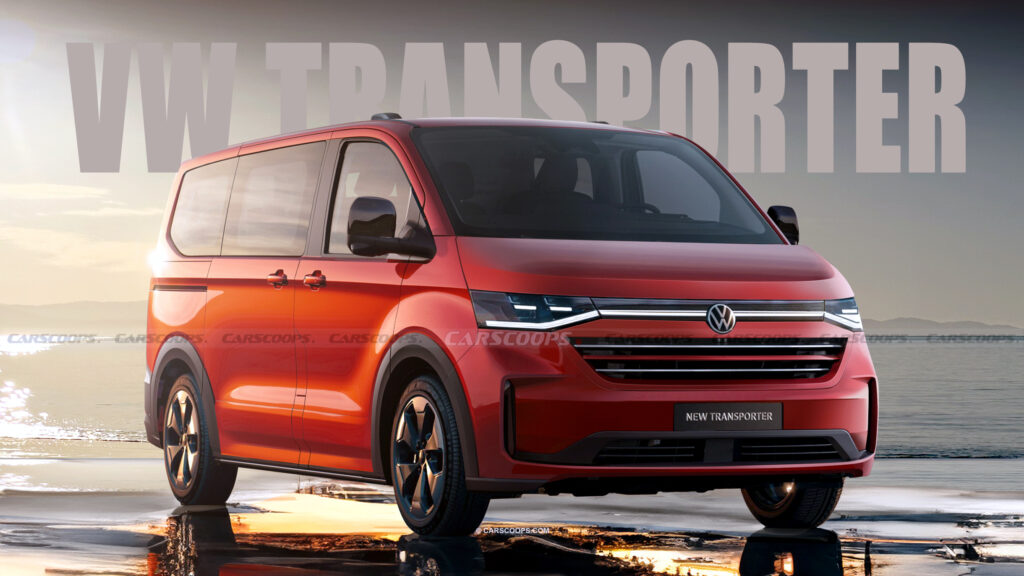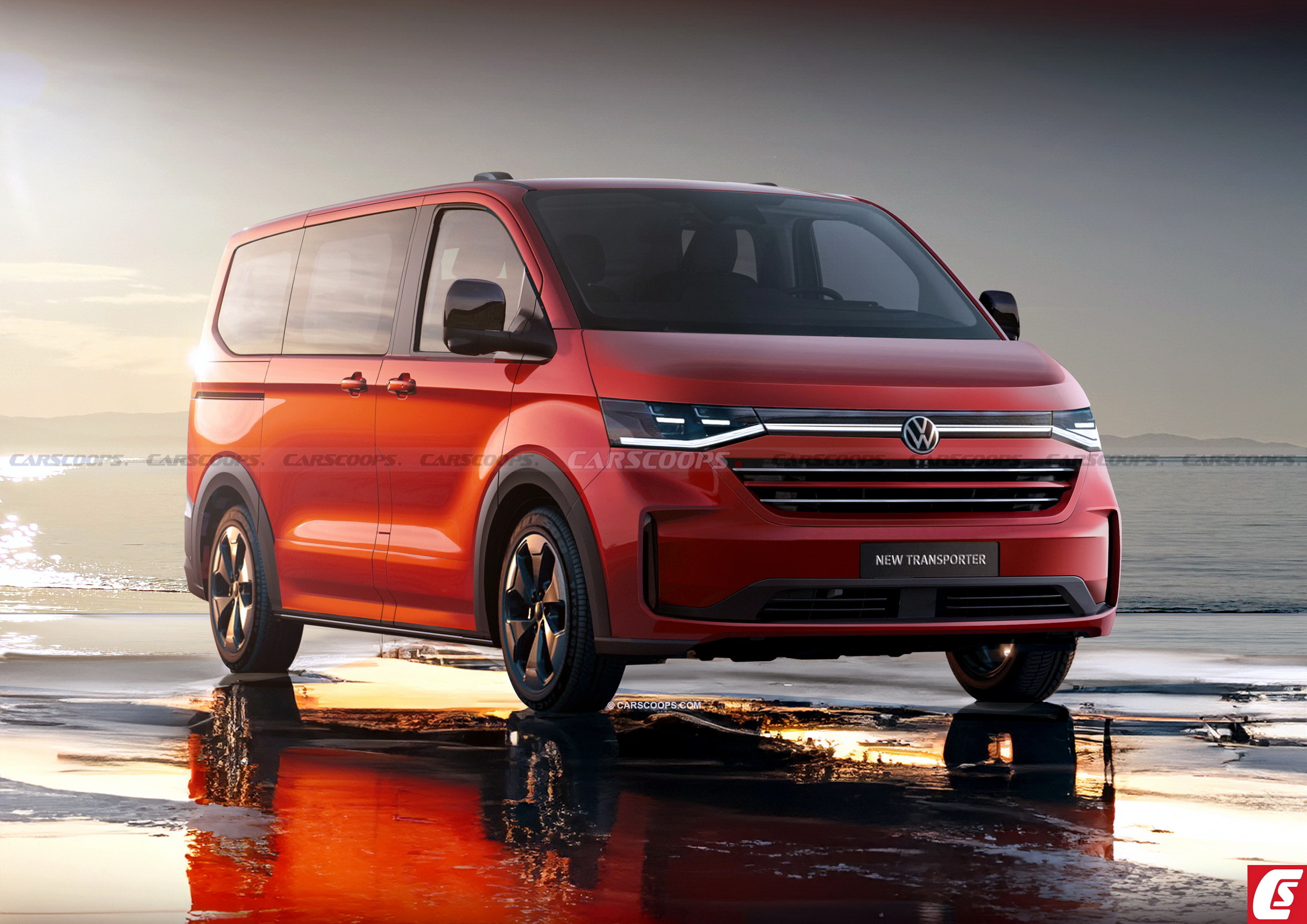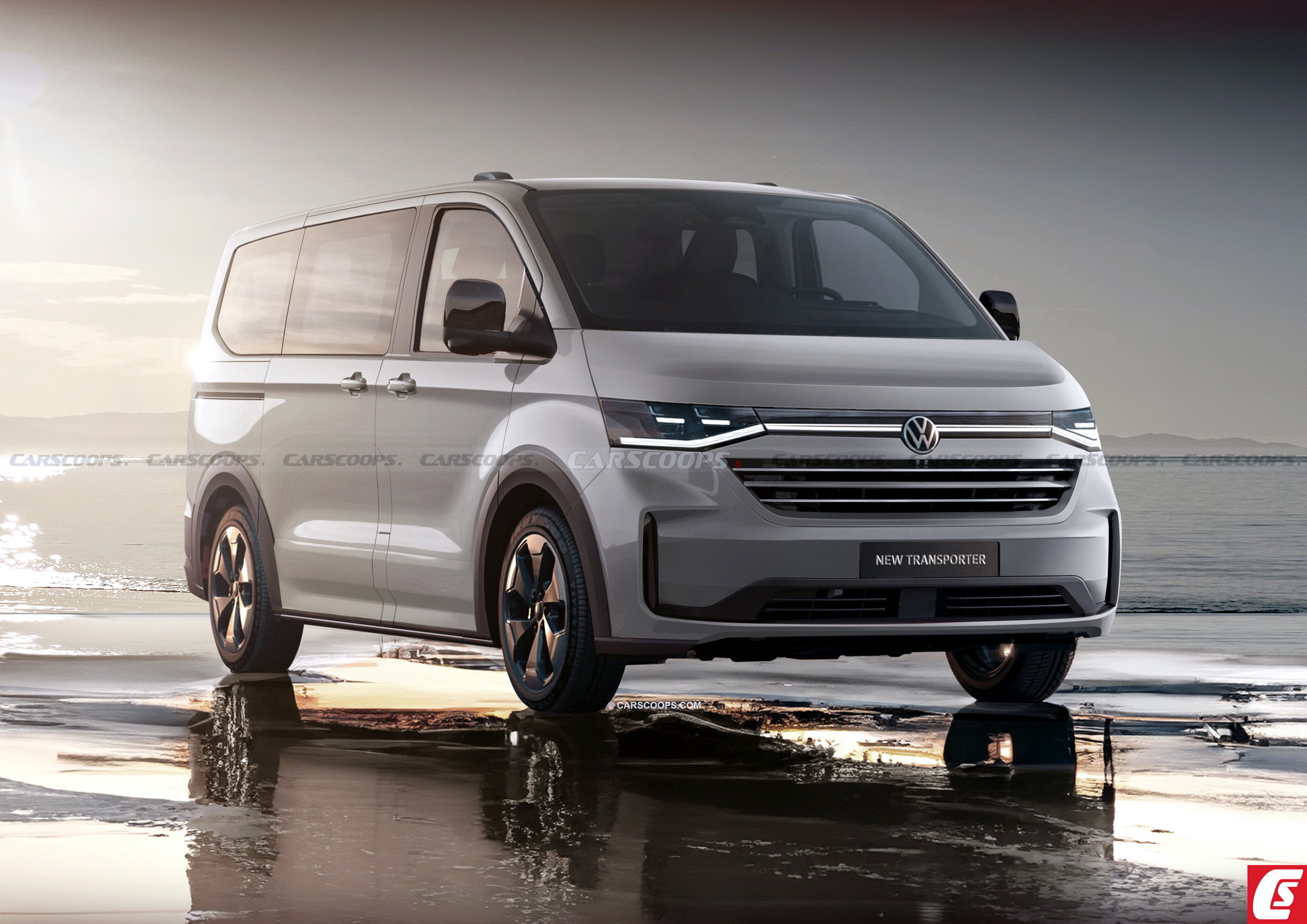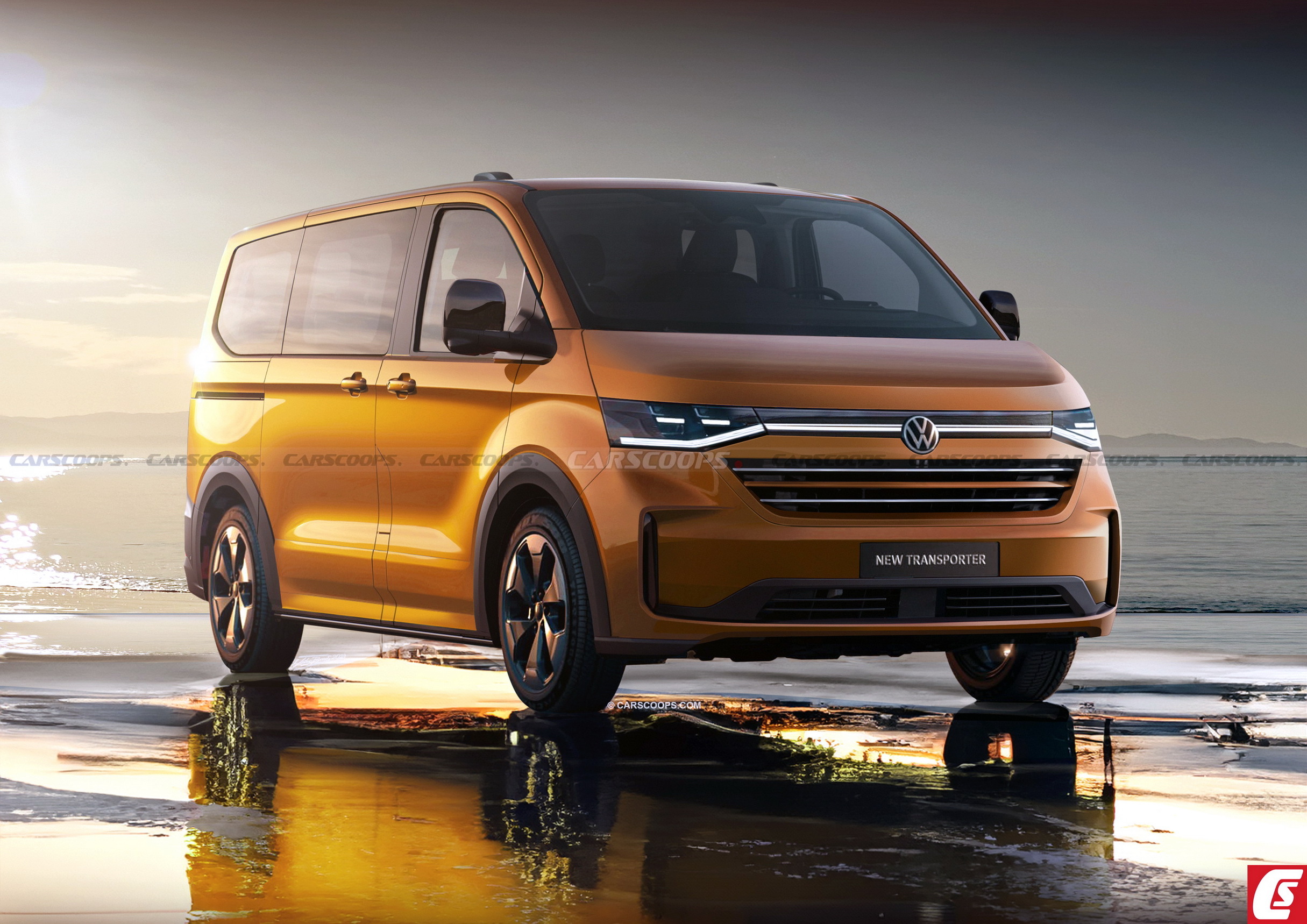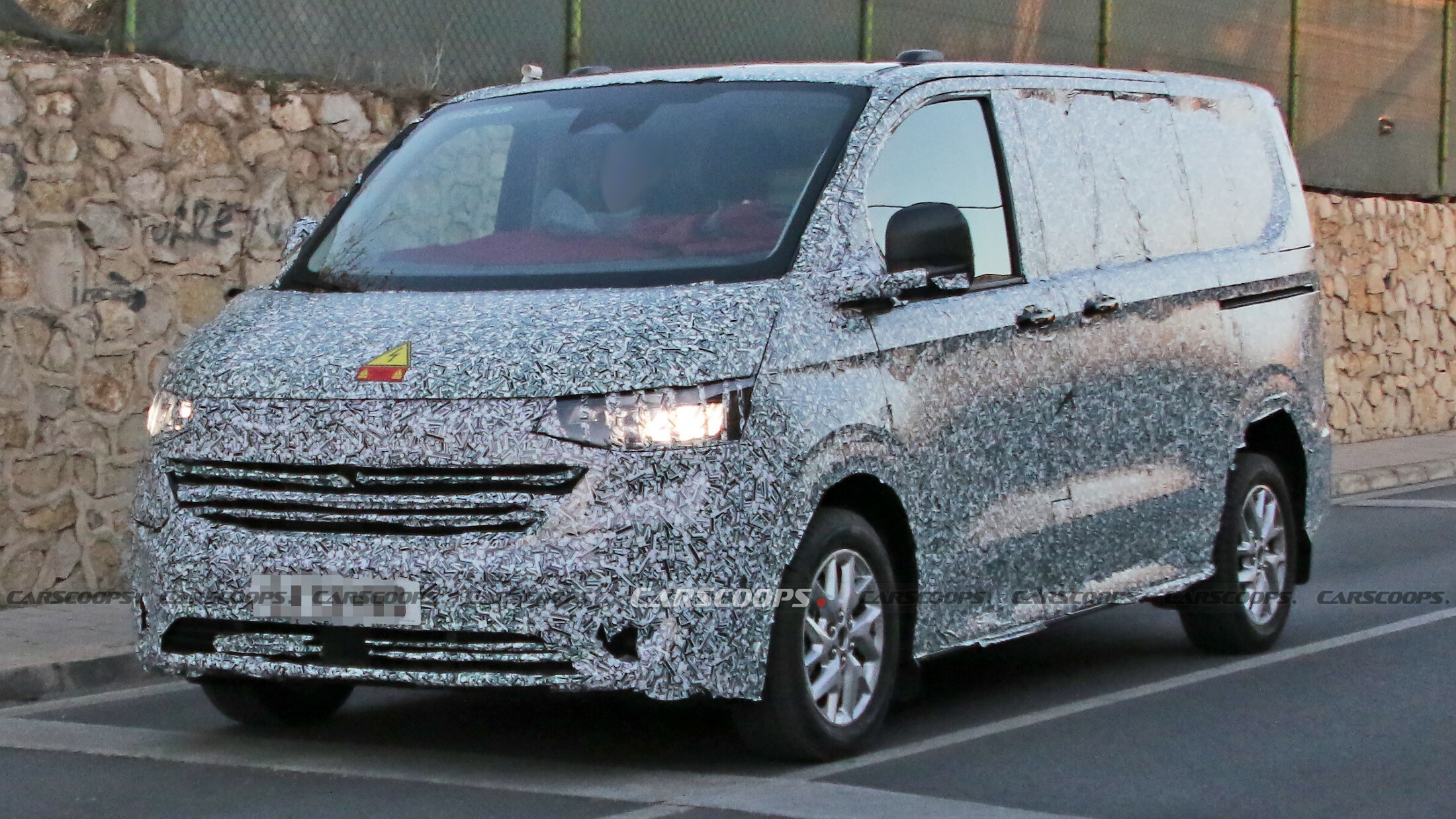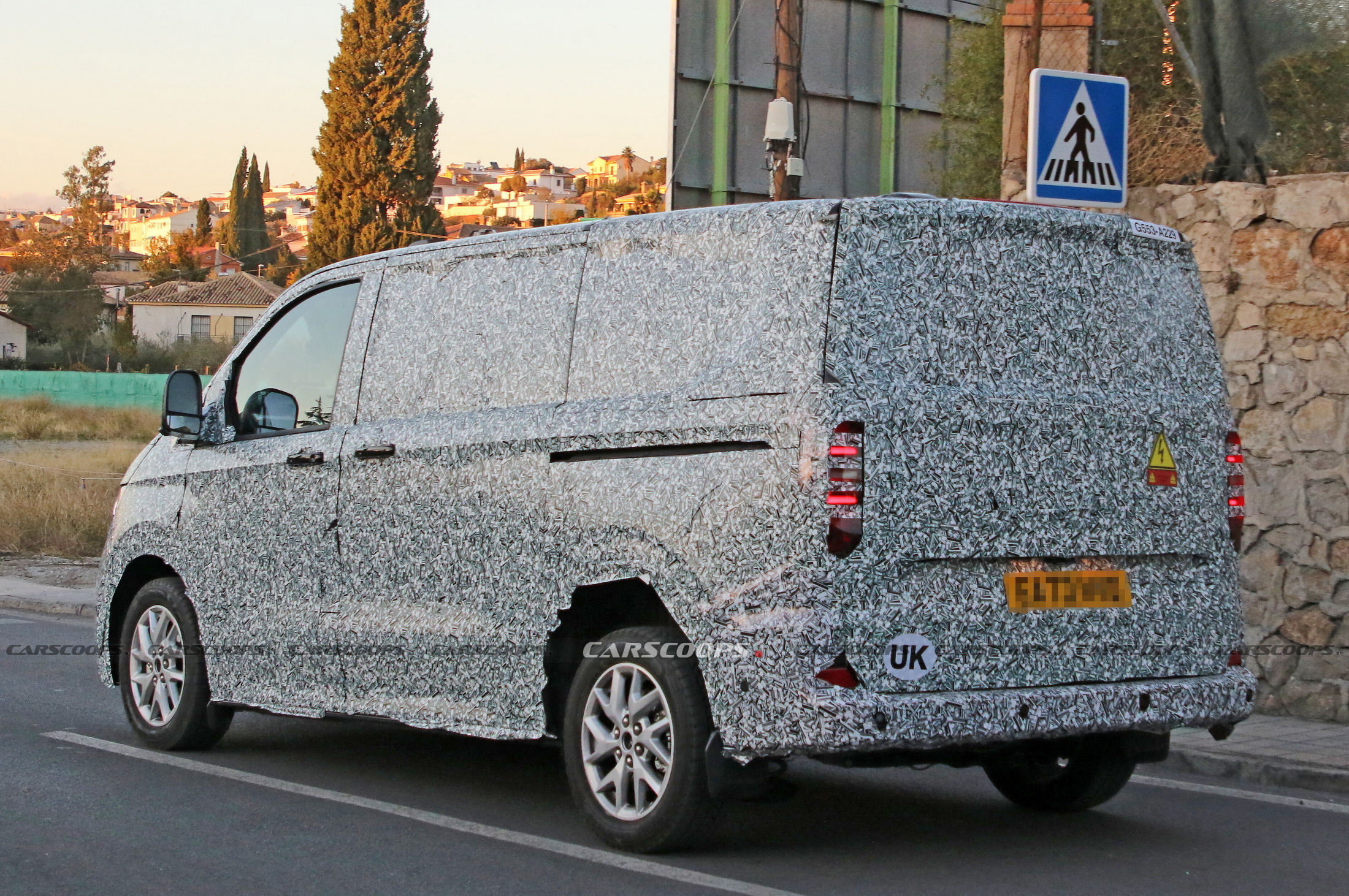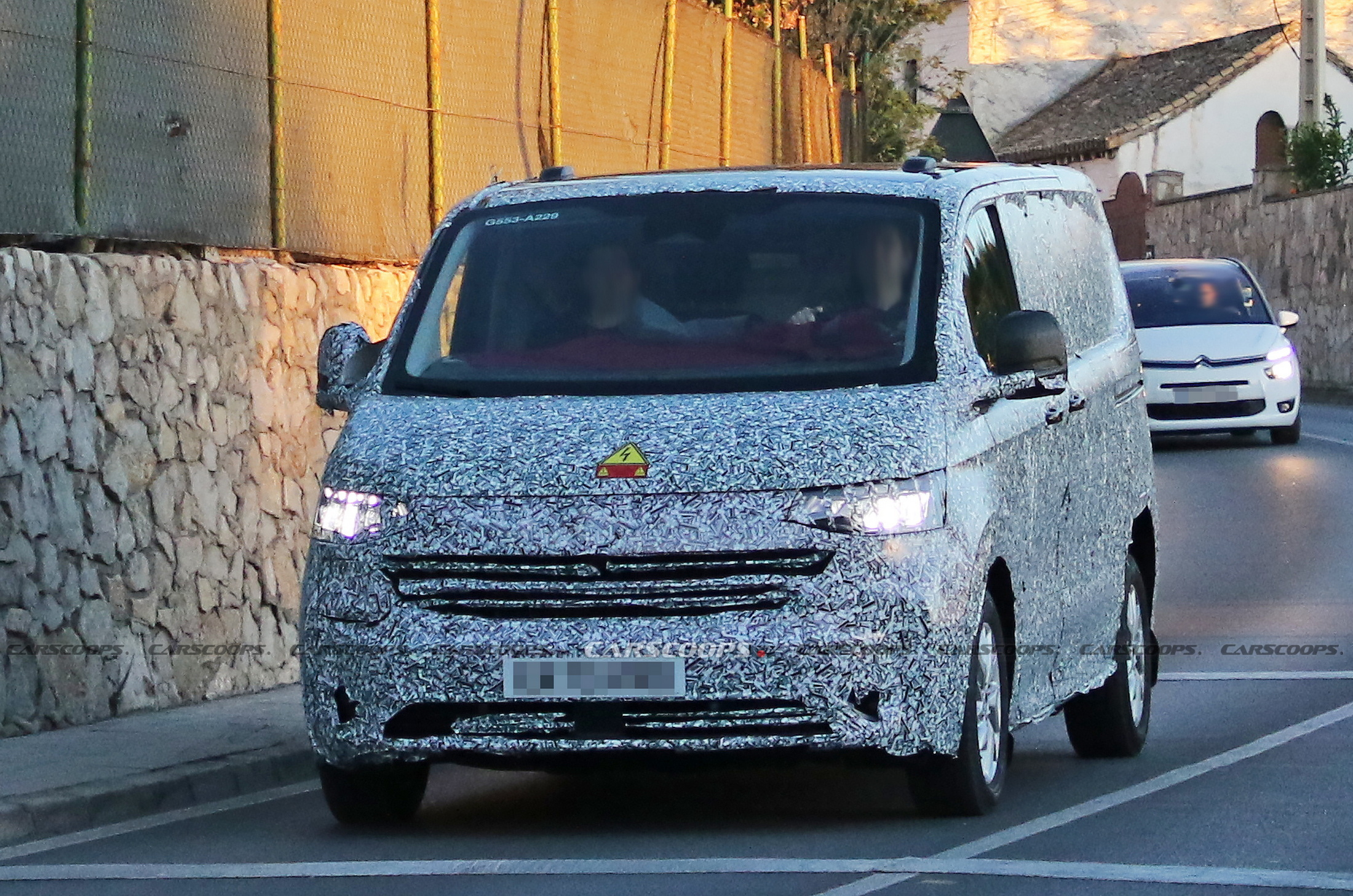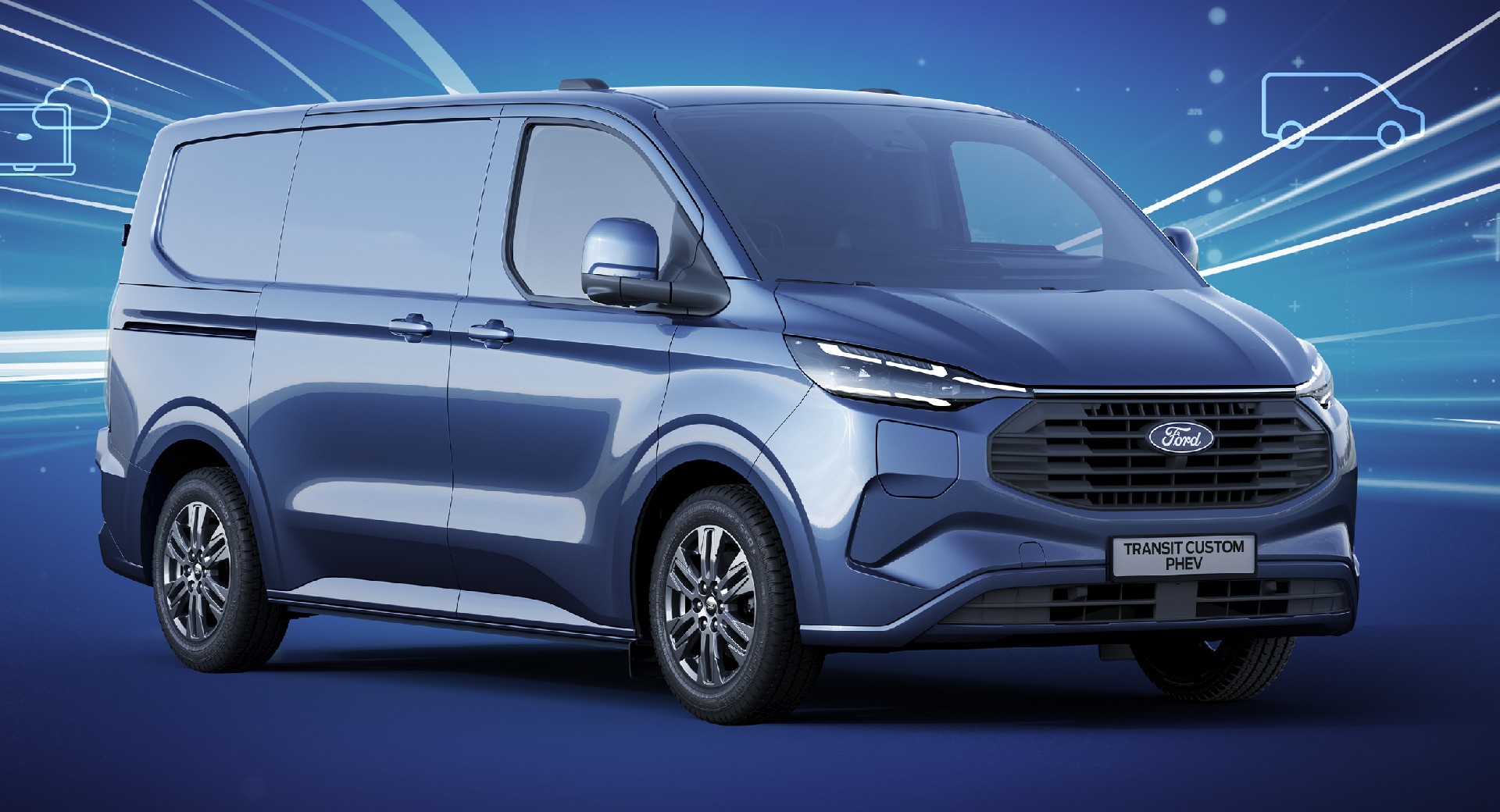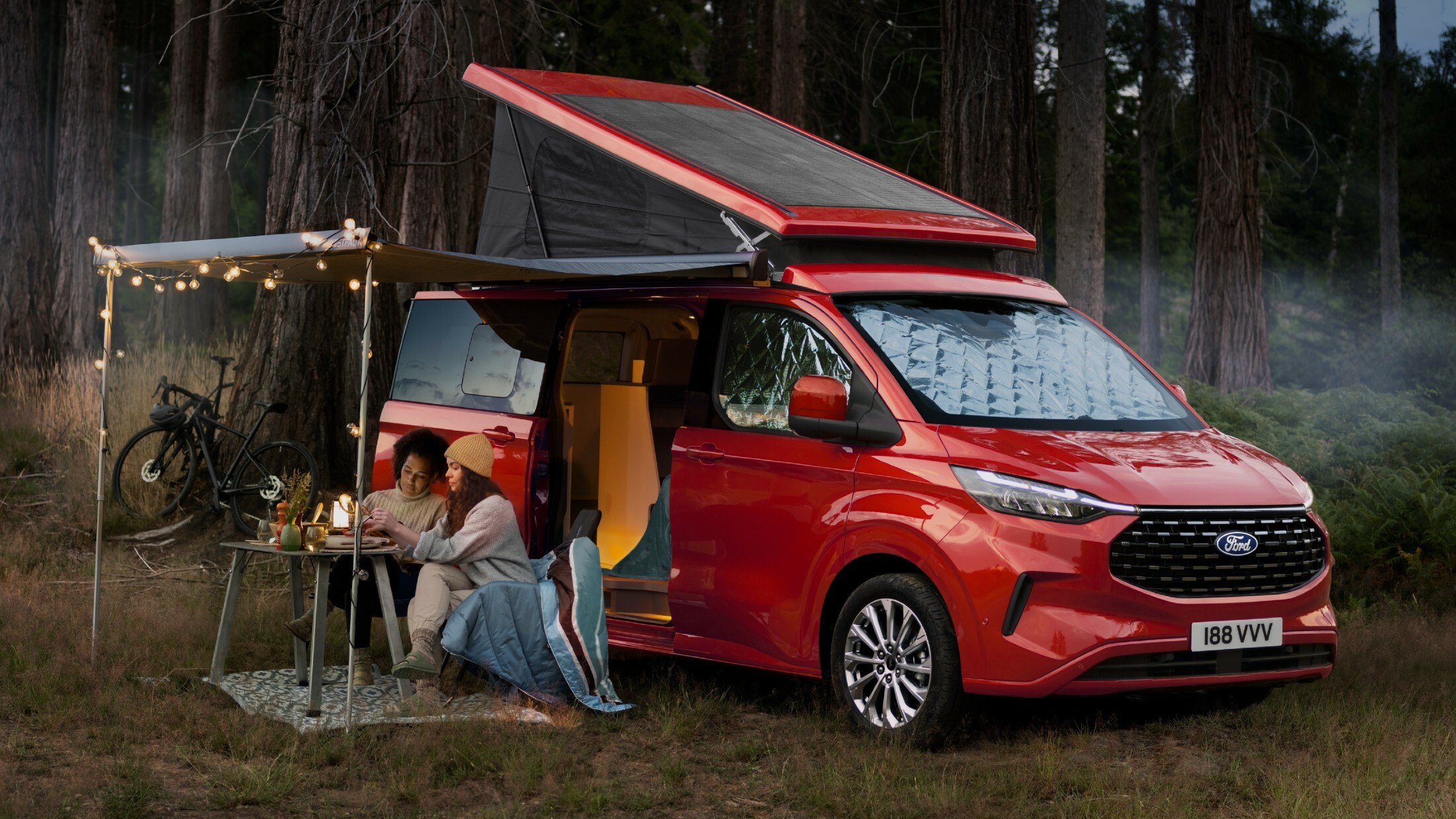Volkswagen’s all-new Transporter cargo van has yet to be fully unveiled, yet pre-orders have already kicked off in Germany ahead of its global rollout over the next 12 months. The Transporter and its Caravelle passenger van siblings are under-skin-twins with Ford’s latest Transit Custom.
The German automaker has already shown us a preview of its all-new interior and thinly disguised exterior. Let’s digitally peel back the camo and explore everything we know before its imminent debut.
A Sharp New Look
Illustrations Josh Byrnes / Carscoops
Volkswagen’s commercial vehicle team have made a lot of effort to ensure its van looks unique compared to the Blue Oval’s offering. At first glance, it might not look like much, but it has a distinctly different front end with a sharp aesthetic that Volkswagen is renowned for. All models sport LED headlights and taillamps and share the same glasshouse as the Transit.
More: New VW T7 California Campervan Spied Testing On The Track
Other key distinctions include different front doors (the Transit has curvier surfacing and an angled element at the base of the B-pillar), shaper lower door moldings and a flatter hood. Out back, the Transporter sports different taillight detailing and crisp tailgate surfacing compared to the Ford.
A Classier Workspace
As with the exterior, the cabin is essentially the same as its donor sibling, albeit with enough Germanic touches to convince you that you’re driving a Volkswagen product. Teutonic cabin surfacing and a dark upper environment exude a premium atmosphere, although lower grades naturally sport a lot of hard plastics throughout.
We applaud Volkswagen for offering a steering wheel with physical buttons rather than the recent touch-capacitive BS plaguing its passenger car line-up. Tech goodies will include a 12-inch digital instrument cluster, a 13-inch infotainment touchscreen – which is Ford-based with Volkswagen skin (fonts, colors and icons), DAB+, and wireless Apple CarPlay and Android Auto.
Delivering The Goods
The Transporter and its passenger van sibling share the same metrics as the Ford, which is no surprise, with all of them essentially being the same shaped box. Compared with its predecessor, the standard Transporter is 146mm longer and 128mm wider and sports a 3,100mm wheelbase. An extended wheelbase variant with a 5,450 mm-long body can also be ordered.
It will be available in two roof heights and as a two-row van with covered-in panel or glass window options. Alongside the passenger variant, a double-cab chassis version is offered, as is the option of a traditional tailgate or rear barn-style doors.
Payload Punch
Sharing powertrains with its Ford sibling, the new Transporter will cater to many, offering petrol, diesel, plug-in hybrid and electric power. The range starts with a 2.0-litre four-cylinder turbo-diesel unit in three states of tune (81kW/108hp, 110kW/147hp and 125kW/167hp) and a 2.5-litre plug-in hybrid developing 171kW/229hp.
Battery-electric variants will come with two battery pack sizes: 54kWh and 83kWh. The former produces a modest 85kW/114hp, while the larger pack can be had with 100kW/134hp, 160kW/214 and 210kW/281hp motors. For the ICE variants, front-wheel drive is standard, while the all-paw grip is available on the higher-output diesels. The electrics are rear-drive, with all-wheel-drive planned at a later date.
Towing and payload metrics have improved, with the standard 110kW turbo-diesel variant now capable of a 1.3-tonne payload (an increase of 100kg), and towing has increased to 2.8 tonnes on the same version.
Rivals and Reveal
Built at Ford’s Ford Otosan factory in Turkey, the new Transporter competes with the Transit Custom, Renault Trafic, Peugeot Expert, Vauxhall Vivaro, Toyota HiAce/Granvia, Hyundai Staria, and Mercedes-Benz Vito.
German pre-orders commenced on 14 December, and pricing starts at 36,780 euros ($40,251) . A full reveal is imminent, with deliveries kicking off later next year.




